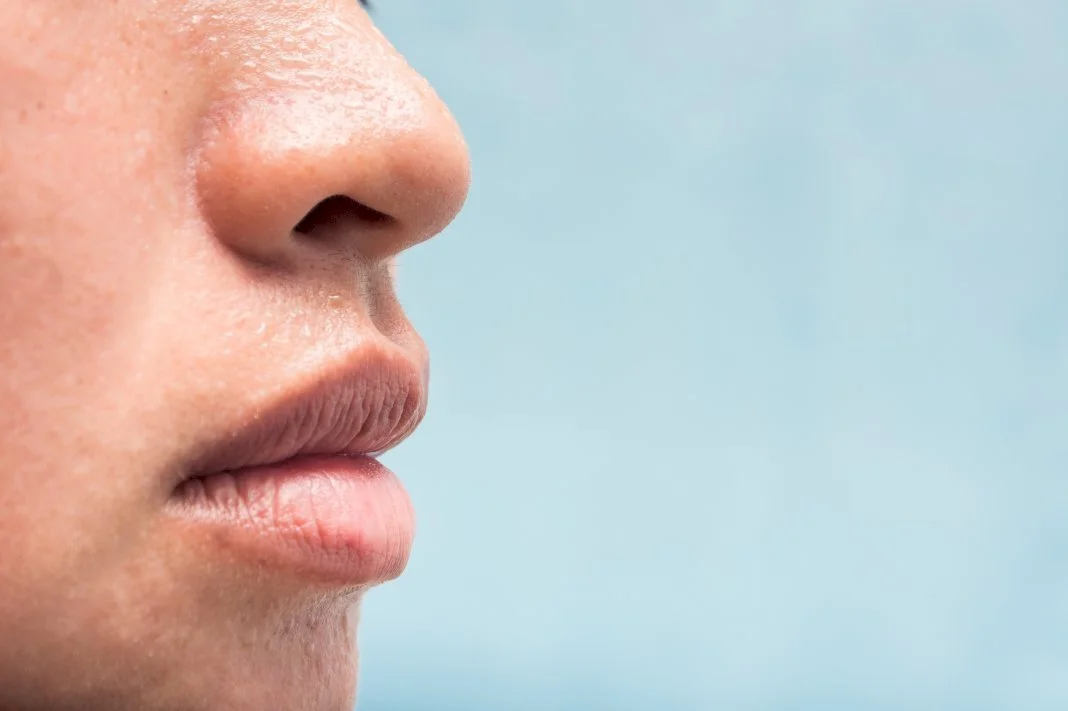Cleanse skin regularly to remove dirt and oil with a mild cleanser formulated for oily skin.
Exfoliate using physical exfoliants and avoid over-exfoliating to prevent skin irritation and dryness.
Use a gentle toner to keep the pH balance of the skin and reduce excess oil without drying it out.
Moisturize daily with an oil-free product to keep the skin hydrated without clogging pores.
Having oily skin can be annoying and embarrassing. It can cause your face to look shiny and greasy and lead to clogged pores and acne breakouts. But there is good news - managing oily skin with the proper skincare routine is possible.
With a few simple steps, you can reduce the appearance of oiliness on your face without sacrificing hydration or promoting dryness. With this guide, you'll learn how to create an effective skincare routine to help balance your complexion while minimizing excess shine.
Stick to your skincare routine.
Here are some skincare routine steps that you should follow if you have oily skin:
Cleanse Regularly
Cleansing your skin regularly is essential when you have oily skin, as it helps to remove excess oil and dirt while also allowing your skin to remain hydrated. To properly cleanse oily skin, it's essential to use a mild cleanser designed for oily skin types; this will help unclog pores and reduce breakouts without over-drying the face.
Additionally, using only lukewarm water when cleansing and double cleanse after the first round is necessary - this can help remove all surface impurities. Cleansing regularly can profoundly impact individuals with oily skin, leading to clear, healthier-looking skin over time.
Exfoliate
Exfoliating oily skin is an essential part of maintaining healthy skin. It is important not to over-exfoliate as it may have the reverse effect and cause excess oil production. For people with oily skin, using physical exfoliation instead of chemical exfoliants works better. Before exfoliating:
Wet your face and use a gentle scrub or buff puff.
Apply a light, circular motion across all areas of the face while avoiding overly aggressive scrubbing that could lead to irritation or scarring.
Rinse with lukewarm water and pat dry with a soft cloth.
Avoid over-exfoliating, as this can strip your skin of its natural oils, resulting in more difficulty controlling the oily build-up in the future.
Use a Gentle Toner
Using a gentle toner is an essential step in a skincare routine tailored explicitly to oily skin. A gentle toner helps keep your skin's pH balance and removes excess oil without drying the skin out. Applying toner with a cotton round or pad ensures the product is spread evenly across your face rather than concentrated in one area.
Regular use may help reduce the appearance of large pores and create a smoother complexion. Keeping the buildup of sebum and dirt off your face can also help prevent further breakouts. Properly using a gentle toner should be part of everyone's regular skincare routine to help keep oily skin looking fresh and radiant.
Moisturize with an Oil-Free Product
It is essential to use an oil-free product to moisturize the skin with oily skin. A good oil-free moisturizer will help reduce excess sebum from the skin's surface, allowing it to breathe better. It can also help decrease breakouts caused by extra oil on the skin.
Additionally, a daily moisturizing routine with an oil-free product helps protect the skin's surface from environmental damage, reduces redness and irritation, and leaves your skin looking and feeling healthy overall. Properly moisturizing with an oil-free product is essential for people with oily skin as it helps keep their complexion clear and healthy.
Apply Sunscreen Daily
Applying sunscreen daily is essential in any skincare routine, especially when dealing with oily skin. Finding the right type of sun protection for this particular skin type can be challenging because of its moisture-resistant properties.
Correctly applying sunscreen will keep your face moisturized while protecting it from UV rays that can lead to premature aging. When dealing with oily skin, sunscreen should have substantial oil control and light texture, as this will be less likely to clog up pores and cause breakouts.
For best results, apply the sunscreen at least 15 minutes before you go outside so that it can effectively absorb into your skin. Remember to reapply several times throughout the day to ensure optimal protection against harmful UV rays. By taking the proper steps to protect your skin and with regular maintenance, you can enjoy smooth and healthy-looking skin for many years.
Avoid Fatty and Oily Foods
Oily skin can be a challenge to manage. Eating suitable types of foods can help keep skin looking its best. To effectively control oily skin, avoiding fatty and oily foods is essential as they increase the amount of oil produced by the body's sebaceous glands. Eating a balanced diet of fresh fruits and vegetables helps maintain good overall health, including healthy skin.
Too much saturated fat, found in fried and processed foods, for example, can significantly affect levels of oil in your skin and lead to frequent breakouts. Drinking plenty of water throughout the day is also beneficial to maintain healthy, hydrated skin. Consuming fatty and oily foods should be limited as much as possible to support your skincare routine, promoting optimal health and balance for an even complexion.
These are just a few tips for taking care of oily skin. With the proper skincare routine and dietary habits, it is possible to keep oily skin looking its best all year round.




